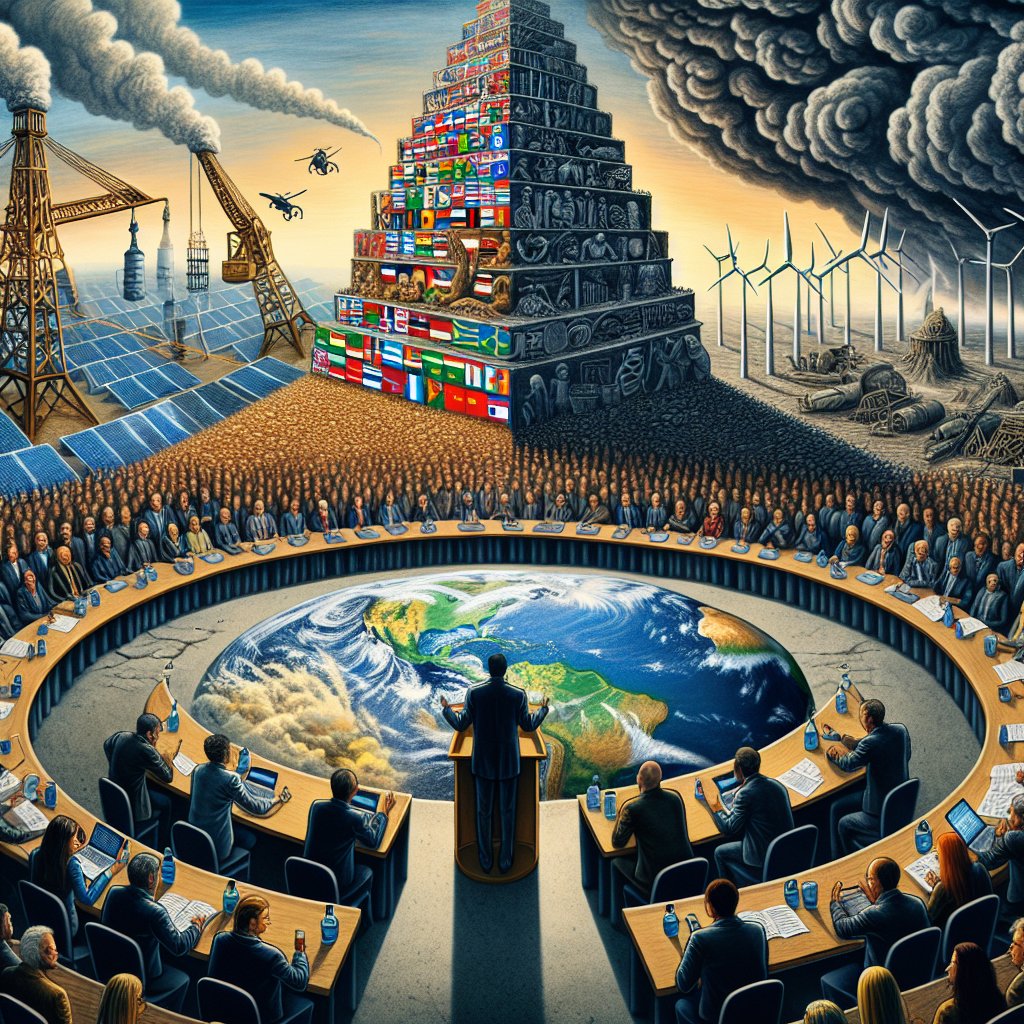Content created by AI
Unpacking the Parallels: COP28 and the Myth of Climate Catastrophe
The notion of climate change and its anthropogenic drivers has become one of the most pressing and divisive topics in the global discourse. As South Africa and the world brace for the outcomes of the COP28 summit, a controversial narrative is emerging that compares these modern climate deliberations to an ancient biblical story – that of the Tower of Babel. Skeptics argue that just as the Tower was an overreach that ended in failure, so might the globalist approach to climate change at the COP28 be a step too far.
At the heart of the COP28 discussions is a shift away from fossil fuels, with global leaders advocating for a transition to renewable energy sources such as sun and wind. This shift is part of a broader "Great Reset" conceptualized by the World Economic Forum, which places sustainability at the core of the global economic remaking. Critics, however, see this as an erosion of diversity and a challenge to the natural order of things, as well as an attack on the fossil fuels that currently account for 80% of the world's energy consumption.
The debate is not just philosophical; it also focuses on the practical aspects of such a transition. The potential costs are astronomical. The case of South Africa exemplifies this, where changing the nation's energy grid to fully embrace renewables is estimated to cost around R1 trillion. This figure seems particularly unfeasible when considering South Africa's abundant oil and gas reserves, which could be tapped into much more economically.
Moreover, skeptics question the very premise that carbon dioxide emissions from fossil fuels are the prime driver of global warming. They point to natural warming periods in Earth's history and argue that nature has its mechanisms, such as trees absorbing CO2, to balance the ecosystem. Critics of the current climate change narrative are also wary of the financial machinations behind the science, suggesting that many scientists supporting the anti-fossil fuel agenda are funded by organizations with vested interests.
The scientific community largely agrees that climate change is propelled by human activities and that carbon emissions need to be curtailed. COP28 proponents argue that the transition to renewable energy is both an environmental necessity and an economic opportunity.
As South Africans and global citizens grapple with these contentious issues, it's evident that we stand at a critical juncture in our approach to energy, economics, and the environment. The outcome of the COP28 and the paths taken post-summit will have far-reaching implications, not just for the present generation, but for many yet to come. The question remains: Is the current trajectory towards combating climate change a modern Tower of Babel that defies natural laws and economic sensibility, or is it a necessary evolution towards a sustainable and equitable global future?










